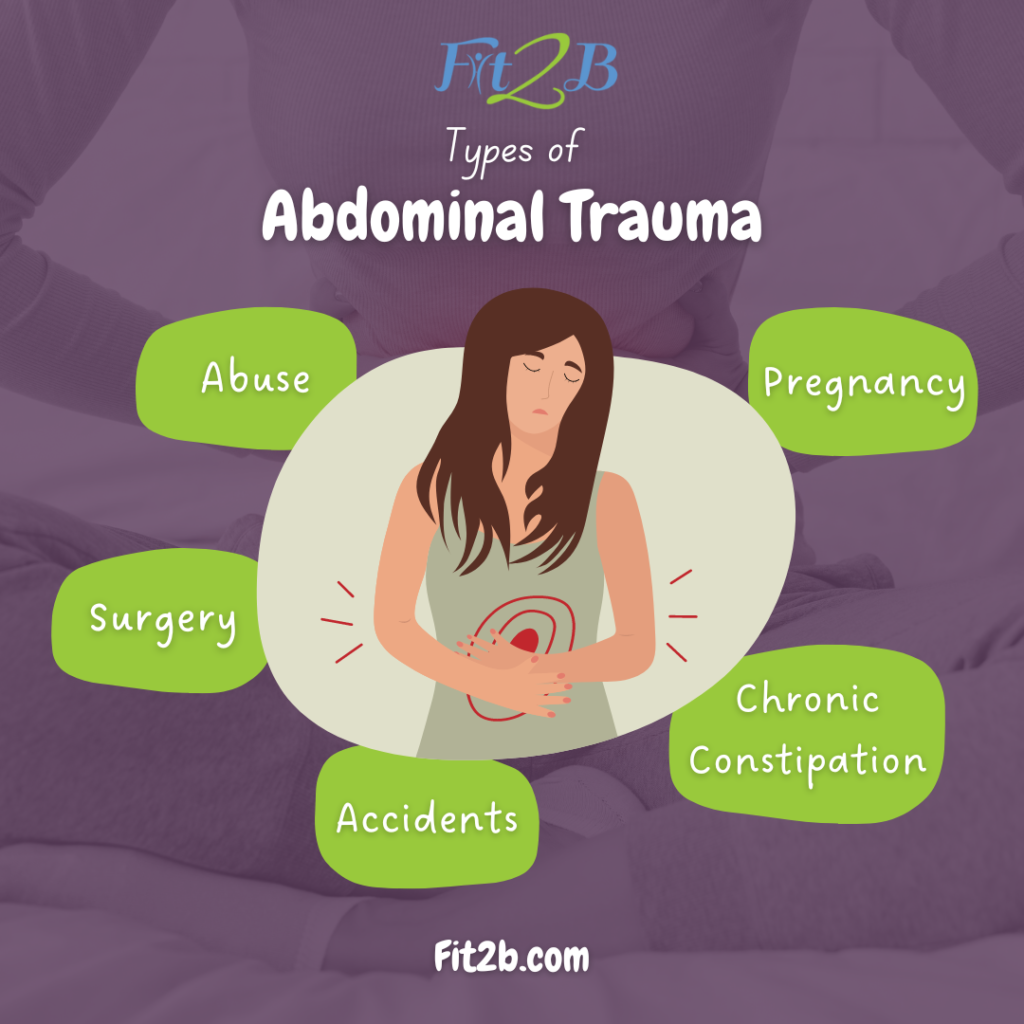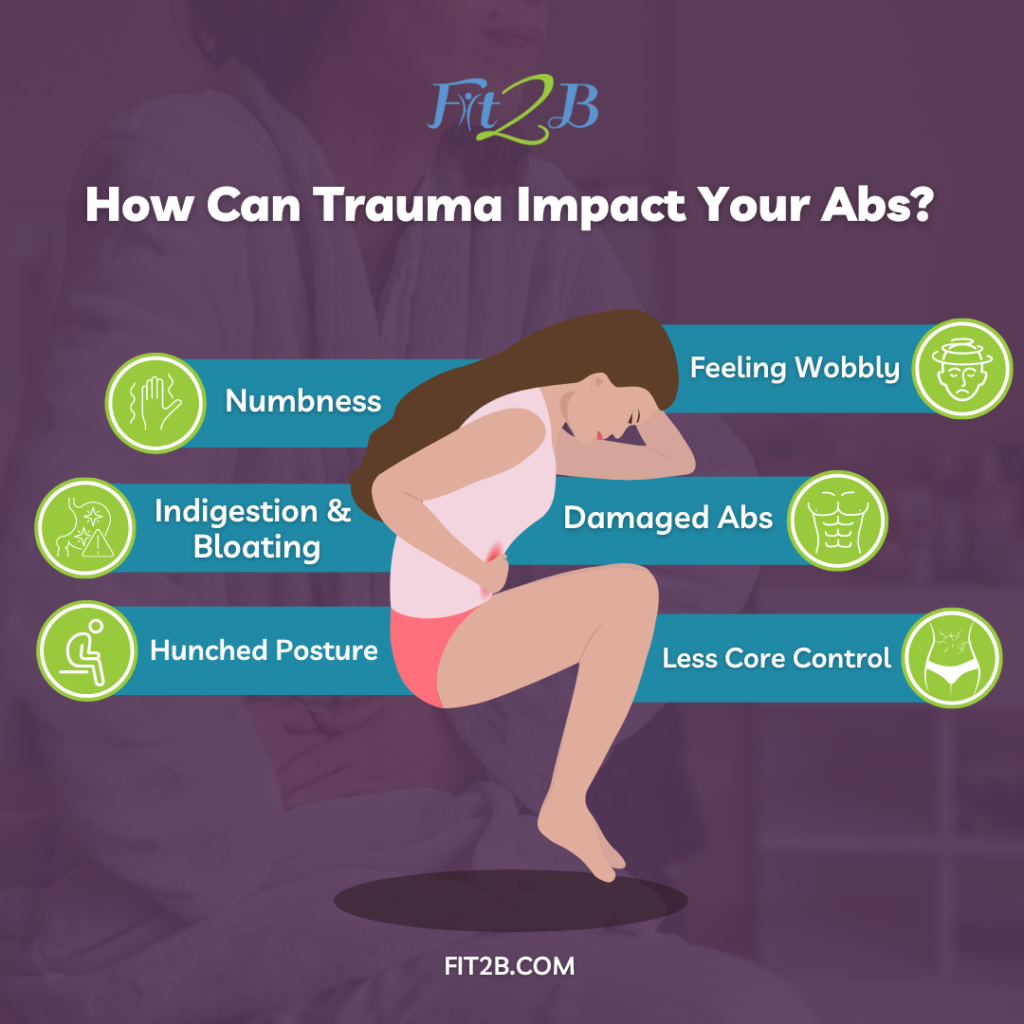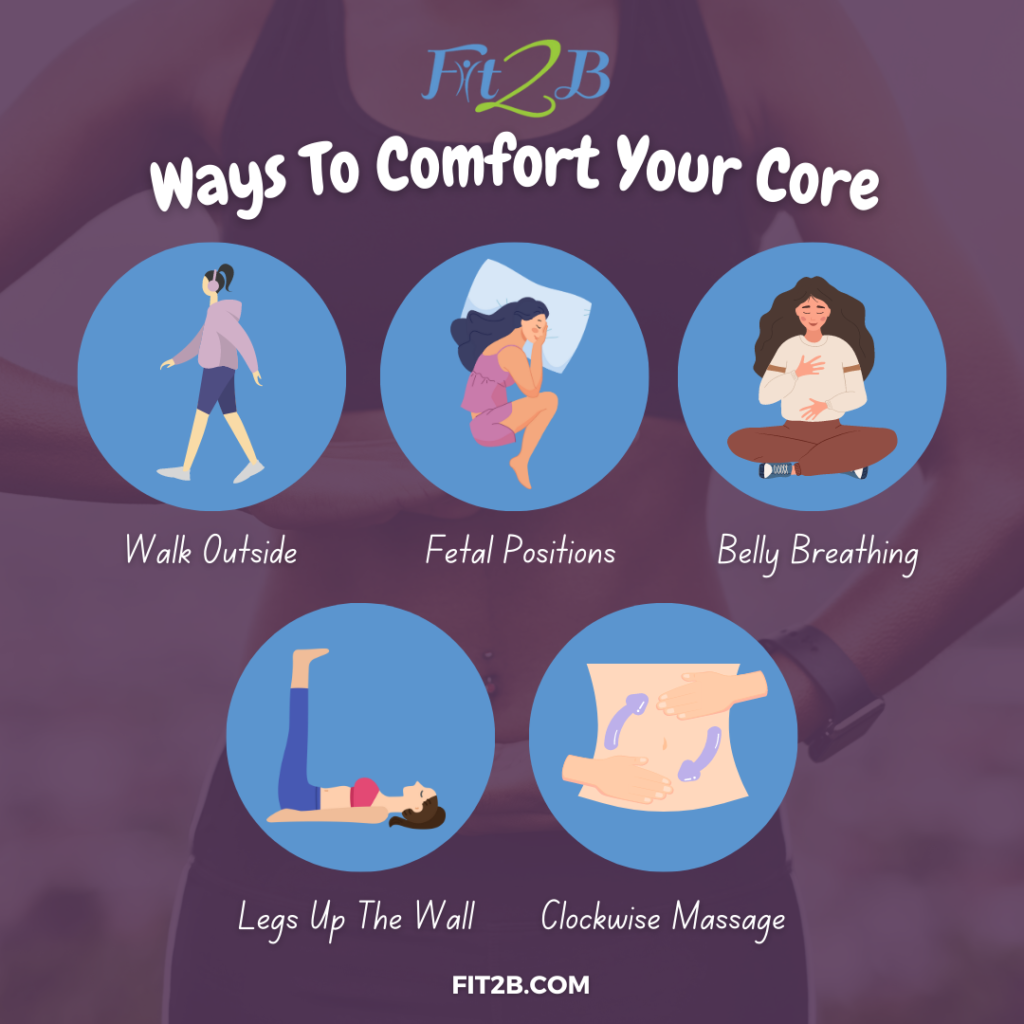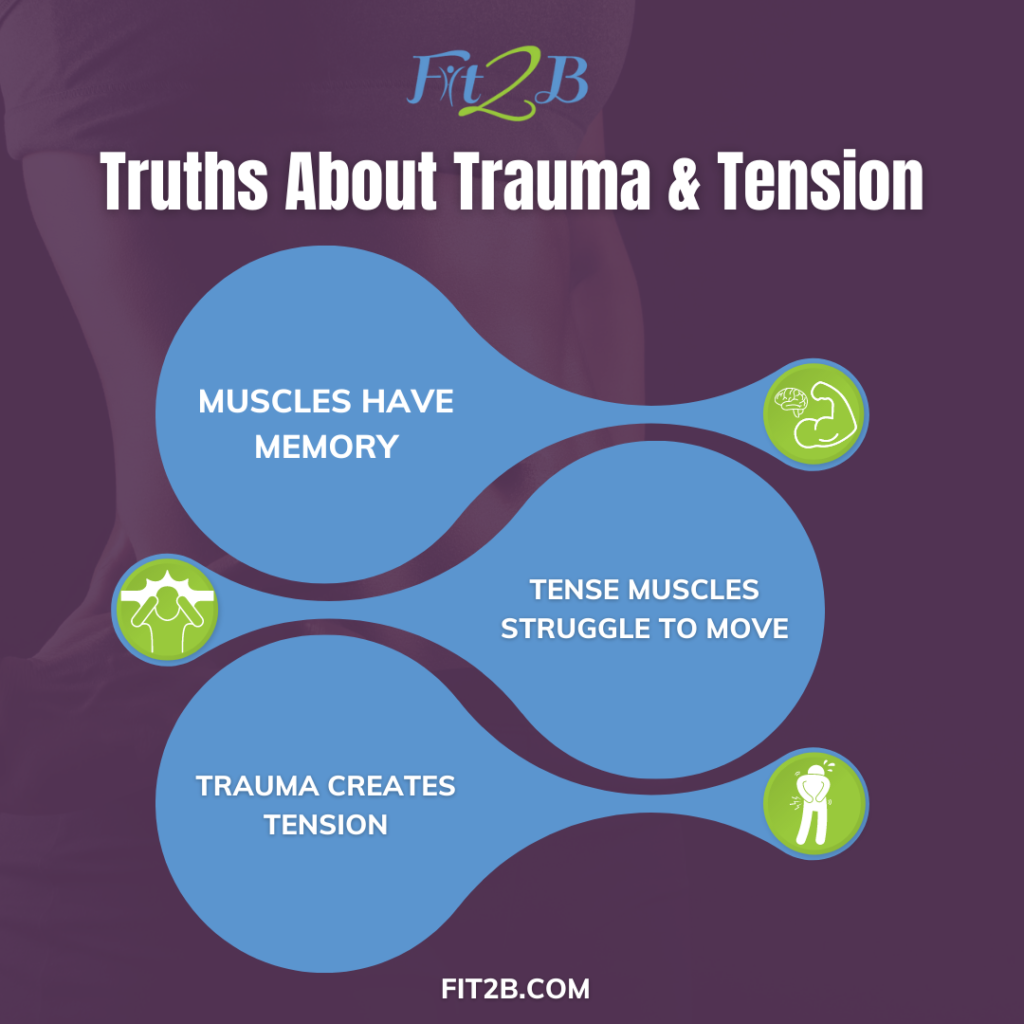Here on Fit2B we provide specialized workouts for women whose cores need extra attention. Often – not always – there is trauma somewhere in their past. However, as I begin this blog about how trauma can affect our tummy muscles – keep in mind that the pelvic floor forms the bottom of our core canister – I want to tell you that you’re not alone in trying to recover from abdominal traumas that have affected your core.
“I don’t think I have words to adequately describe my thankfulness for this video. Both of the Grief Recovery videos actually…… I feel so calm and connected right now. Almost whole.”
-Michelle D.
Anything that physically alters your abdominal muscles creates trauma to those muscles. You might be thinking, “How is constipation on the same level as being punched in the stomach?” Emotionally and mentally, it’s not. Yet there’s two things in common in all of the above scenarios: Fear and Pain.
Even if you had an amazing pregnancy, your abs were forced to morph and stretch a lot. Chronic constipation can cause the same amount of distension and it can feel like labor to finally poop.
Your abs are used in the same ways for birth and big bowel movements, so…
If you get scared…
If you have to strain…
If things get stuck…
If you feel out of control…
If you tear apart…
If you get cut…
… Then now you’ve got a traumatic emotional memory tied to your belly muscles, and that impacts those muscles. It affects their performance, their ability to relax, their ability to flex, and your ability to confidently control them. No control means no continence. No continence means incontinence which means bladder and bowel leakage which dramatically affect your quality of life and ability to exercise.
How Can Trauma Impact Your Abs?
- Numbness
- Damaged Abs
- Feeling Wobbly
- Hunched Posture
- Less Core Control
- Indigestion & Bloating
If you’ve had a c-section, your ab muscles were traumatized when they were sliced, and if it was an emergency Cesarean, that compounds the trauma in your mind and body. If you have ever been abused anywhere on your belly – or if you’ve been raped or sexually assaulted so that your pelvic floor (which is the bottom of your core) was left damaged and dysfunctional – or if you’ve been in a car wreck where your midsection was struck – or if you’ve suffered the loss of a baby during pregnancy, during childbirth, or anytime after – or if you have dealt with chronic constipation, endometriosis, and bloating and lived in constant pain from those issues – any of those experiences can make it harder for you to connect to your ab muscles.
Again, those things are NOT all on the same emotional or mental stress levels at all, but each of those things introduces trauma to your core, potentially creating numbness, damaged muscles, instability, poor posture, weak muscles, lack of control, and bladder/bowel issues.
However, you need to know that your abdominal muscle issues are treatable. It takes time and support, rest and nourishing, restorative exercises and therapeutic help, but your muscles can make a recovery.
Here on Fit2B we address the “fitness piece” of all those things. We can move – we can help you move – in restorative ways that reduce your numbness, improve circulation, strengthen your muscles, rebuild your posture, address your Diastasis Recti, take pressure off any herniations, and get your confidence back!
The post-traumatic stress you may be experiencing after everything you’ve been through can really impact how your abs perform when you ask them to do a hard workout. If they’re shut down – if you’re shut down – it will be harder for you to connect to your core. You may have hernias, prolapse or a worse
Diastasis Recti due to your traumas, and you may struggle more to correct those things.
Some movements to Comfort Your Traumatized Core
Walk Outside: Gets your bowels moving, and looking at things beyond your 4 walls helps shift your mind and mood.
Fetal Positions: Curling up into a ball helps you feel safe. It also presses on your tummy to push out gas and stimulate your body’s systems to “release.”
Belly Breathing: Imagine your core is like a balloon. Fill that balloon with air, making your belly big. Then let your air out, so the balloon in your belly gets smaller. Try to inhale deeper and exhale further each time. This calms your nervous system and connects you to your core muscles.
Legs Up The Wall: Lay down near a wall and turn so you can put your feet up on the wall. Allow your legs to fall open wide. This position relaxes many major muscles, fights pelvic pain, and taking deep breaths here is very soothing.
Clockwise Massage: Rub your belly area in clockwise circles. This stimulates your lymph and your digestion. Trauma to the tummy can make us avoid touching it, but massaging your abs can bring lots of comfort.
Consult your doctor if these things bring more pain and discomfort.
Your nerves know the last thing they sensed. If your abs haven’t felt anything “good” since they experienced a trauma such as surgical slicing, damaging abuse,
pregnancy loss, panic from danger, or pain from disease or illness, then is it any wonder you feel disconnected and hesitant to exercise them? If you do try exercising them, do they even respond? Can you fully flex and fully relax all 4 layers of your abs? Can you engage your pelvic floor muscles and relax them without fear of leaking? Does anything hurt?
I wish I could reach through this screen and instantly heal your past and your pain. I wish I could undo what happened to you. I wish I could talk to you right after your trauma and
get you pointed in the right direction sooner.
What I can actually do is keep showing up in this space. I can be here for you with my heart and my passion to help you and all those in your shoes with
gentle, non-traumatizing workouts. I can offer you home exercise videos that help you meet your core where it’s at like the following titles in our fitness library:
Those are just a few of the streaming home exercise videos that we offer to people who are processing deep things in relation to their
Diastasis Recti and pelvic floor issues.
Leave a comment
What do you think? Are there other ways that you have seen trauma impact the abs? Have you experienced abdominal trauma that left your own core out of sorts? Has a traumatic experience changed how you exercise in other ways? If you feel comfortable sharing, we know it would be helpful for others to read your story and thoughts. Many feel like they’re alone, and they’re not. You’re not alone.
Join Fit2B Today




